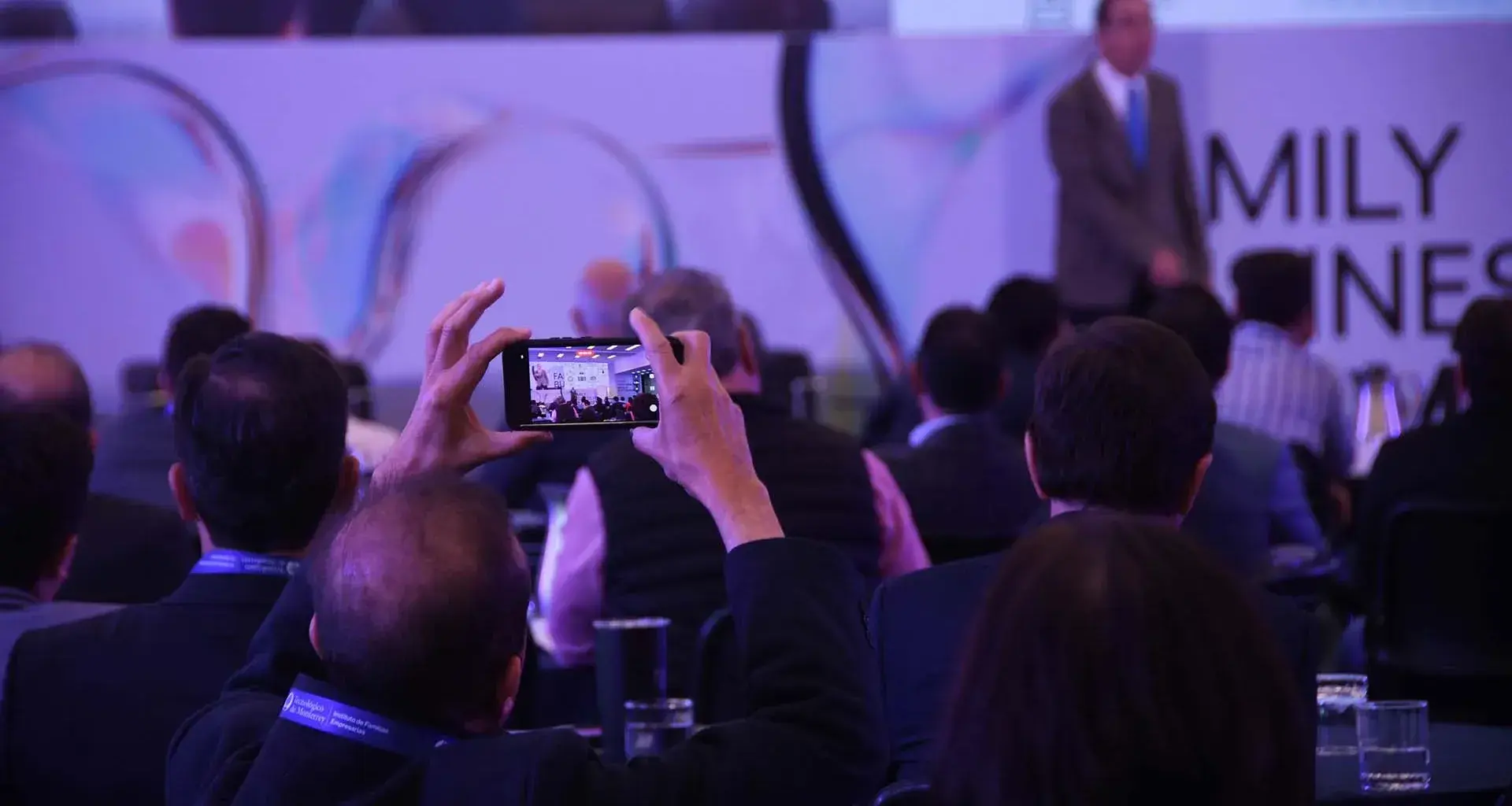Businessmen and women from Brazil, Colombia, Costa Rica, Ecuador, the United States, Guatemala, Honduras, Panama, and Mexico attended Family Business Forum LATAM 2024 “Legacy: Transformation Beyond Continuity.”
María Fonseca, Director of the Institute of Enterprising Families for Mexico, said that the relevance of this forum is that it provides an opportunity to learn, connect, and share.
“The institute’s reason for being is you, our business families, who generate more than 80% of the country’s Gross Domestic Product, generating more than 70% of its jobs.
“Mexico and Latin America have many similar characteristics, but we also have our differences, and it’s in those differences that I ask us to pay attention and share with those who are similar so that we can learn in order to become better.”
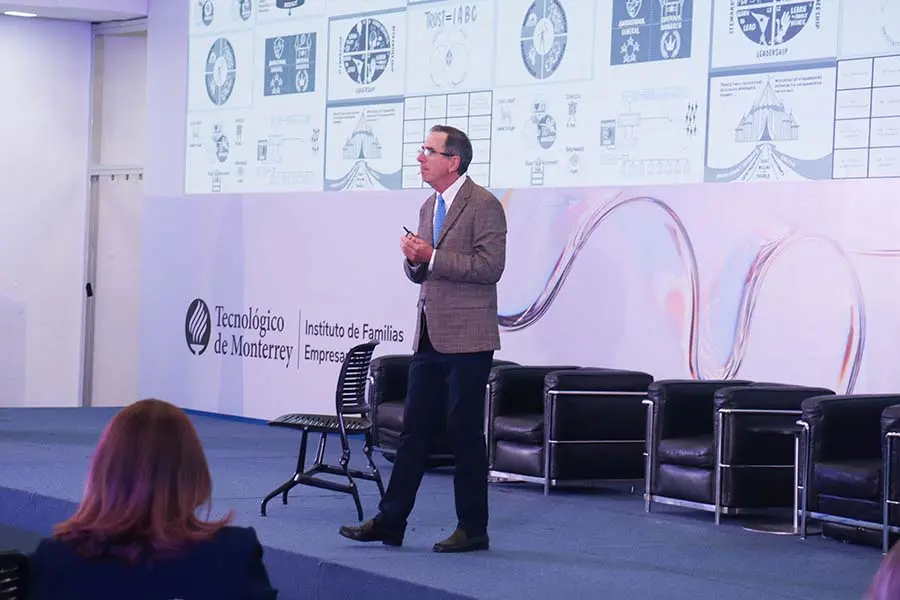
Legacy goes beyond money
On the first day of the meeting of Tec de Monterrey’s Institute of Enterprising Families for Mexico and Latin America, Justin B. Craing, a researcher in entrepreneurship and family businesses, gave the lecture “There Is Nothing Artificial About Legacy”.
Craing spoke of the importance of building a legacy and ensuring transcendence across generations.
According to Craing, legacy is important because it is what will be left to the next generations that are part of enterprising families. It goes beyond money and property because it is intangible.
He defined legacy as: reputation, values, beliefs, social capital, networks, contacts, relationships, ethical business conduct, and attitude towards the environment.
“Legacy is even more important than succession. Although I don’t talk about succession, I do talk about the development of the successor because that’s related to legacy and continuity.”
Legacy must be linked to the outgoing generation, and the person leaving the company must prepare a governance plan to guide continuity, in addition to establishing safeguards to ensure that the business family prevails.
“We need to leave a governance plan because there are many more in the next generation. Begin thinking about it because we need something to guide them on this path of continuity.
“Your legacy will probably be tied to the concept of trust. So, part of your legacy is to be trust ninjas, take advantage of trust, instill trust, make it part of your DNA.”
The professor pointed out that companies must be constantly entrepreneurial, which requires risk-taking, competitiveness, innovation, autonomy, and being proactive, as the next generation is what is needed to face competition and maintain continuity.
He said that, as part of the business life cycle, enterprising families must know about business in general and in particular, manage leadership, and learn to let go when the time comes.
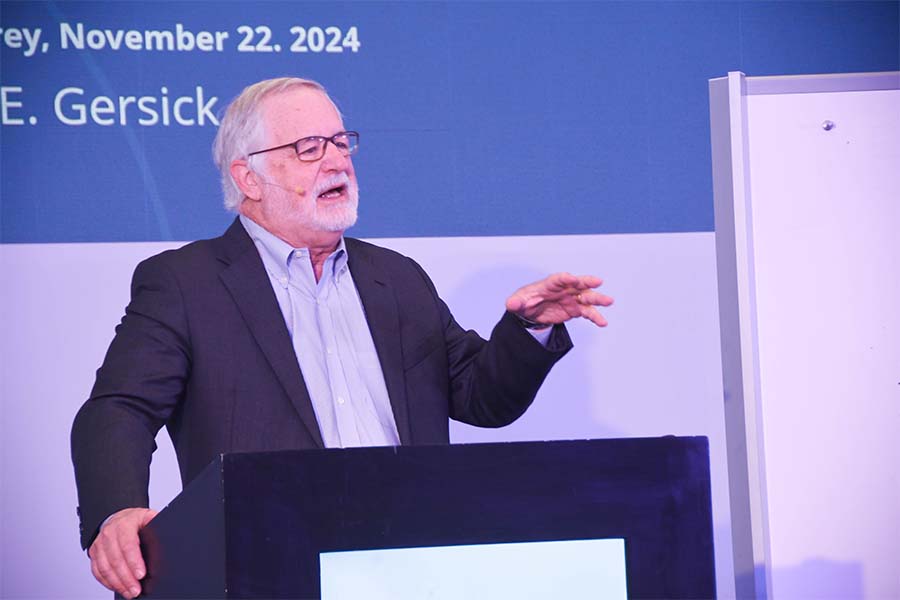
How does a senior leader prepare for retirement?
To share reflections on leadership and continuity planning from the perspective of an outgoing generation, Kelin Gersick, partner emeritus of Lansberg Gersick Advisors, gave a lecture on “Continuity and Leadership”.
Kelin is an expert in leadership transition and succession and is currently working on a study to learn what happens to older adult leaders who are in the last stage of their life and how they found meaning after the transition.
As part of his research findings, he has found that some older adults:
- Cling to leadership.
- Experience cognitive fears that lead them to live with anxiety.
- Experience changes to retaining their memory.
- Experience a decrease in their physical energy.
With respect to emotional fears, which prevent some CEOs of family businesses from leaving their position when they should, there is the loss of a heroic mission, i.e., the feeling that the organization needs them.
And the second emotional fear is the loss of heroic stature, which refers to when the senior leader needs the organization in order to continue living.
According to Gersick, sometimes this is expressed in a fear that retirement means death, that people retire and get sick and die within a very short time. There really is no data to support that idea.
“The problem is that many people leave because of a health issue that then leads to crisis or death, so it’s not the fact that they left that caused the death.”
What can a family do to help? According to the specialist, they should talk about it when their leaders are in their 40s or 50s, not when they are in their 70s.
“The greatest challenge and the greatest gift of the older adult is to create a world that is going to flourish without you, beyond you; to the degree, to the extent that you can help in this, that’s all you can do.”
In this psychologically focused lecture, Gersick promoted empathy and compassion on the part of the business families for the leader who is in his or her senior stage in the process of retirement.
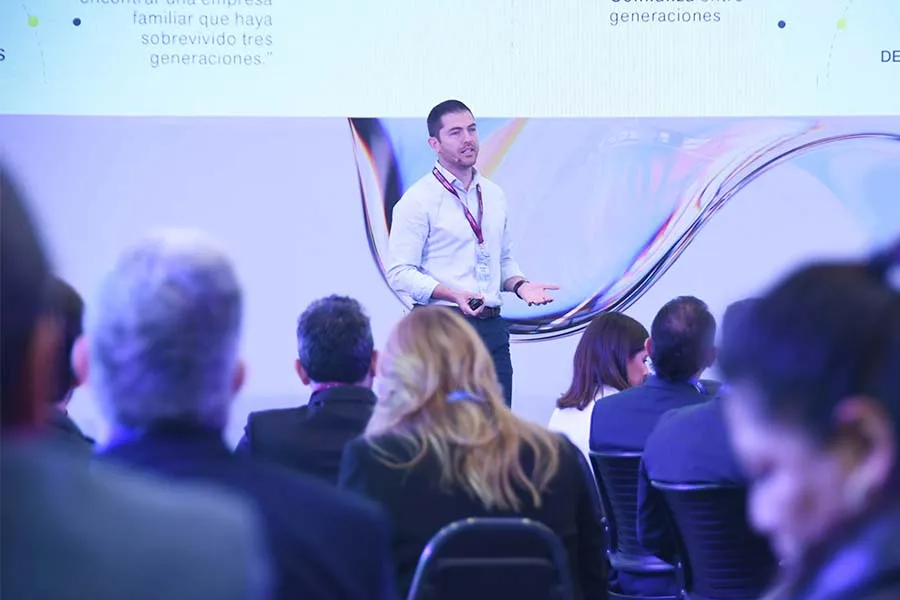
Testimonials from members of enterprising families
During Family Business Forum LATAM 2024, representatives of business families shared their testimonies on how they have managed their companies and the biggest challenges they have faced.
With their presentation “Leonisa: Innovation Over Generations Through the Family Office”, Diego Urrea, Director of Family Office, and Esteban Urrea, founder and partner of Vertical Partners, who are respectively uncle and nephew, explained that their company has been characterized for generations by innovation.
With the integration of experience and knowledge, trust and communication, they are working on the legacy of a generational transition of the women’s underwear company founded in 1956.
Esteban Urrea emphasized that one of the most important challenges is to unite the family.
“It’s about how to have the best versions of everyone anywhere in the world connected to our legacy, to that company, to that family,” he said.
The founder and partner of Vertical Partners said he was proud of the trust and family unity they have achieved in Leonisa.
“We’ve always achieved above 75% engagement. That’s a uniqueness that we’re obviously very proud of... and that’s led us to accelerate the transition. We’ve gained trust with the second generation, my uncle, my father, and among us as cousins.”
“Business families not only build businesses, but they also build legacies, and that’s what we’re working on,” said Esteban Urrea.
According to Diego Urrea, “What we’re achieving was thanks to that sandbox, so that the third generation could sit in it and not fight over the toy, but rather have a say in the investments. We’re achieving that, and we’re very happy.”
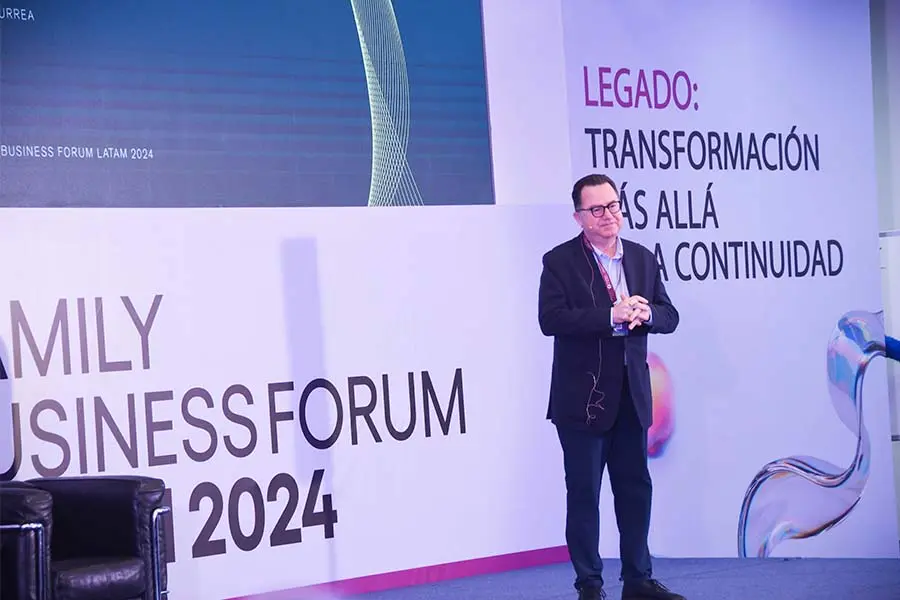
The transition to digital technology
To analyze continuity in the face of technological disruption, José Ramón Medrano, Director of haulage company Frío Express; and Carlos Metta Hanan, Director of real estate company GIM-HOGARES UNION-MIGDAL ARQUITECTOS, shared their experiences.
Ivonne Mejía, director of solutions sales at Microsoft Mexico, also participated in this panel moderated by Salvador Cerón de la Torre, partner and director of Cerón & Co.
Medrano mentioned that the haulage company has implemented technology in information processes for decision making, as well as in operational processes with interactive trucks.
“The challenge is how we go about making those disruptions and how we go about effectively incorporating them.”
In terms of technology, they use all the data that comes from the truck, which comes from the operator to make a better decision to prevent a person from having an accident.
Metta Hanan said that 95% of the real estate company’s sales come through digital channels. It has also expanded technology in production and customer sales processes.
This is thanks to technological tools such as: chatbots, management software, and artificial intelligence.
“All interactions, from leads, processes, all the way through to the sale, writing, and post-sale is integrated into our end-to-end model that leverages primarily technology tools,” said Metta Henan.
The technology expert pointed out that, “At the enterprise level, the most important dimension is how that technology helps your employees to be more productive.”
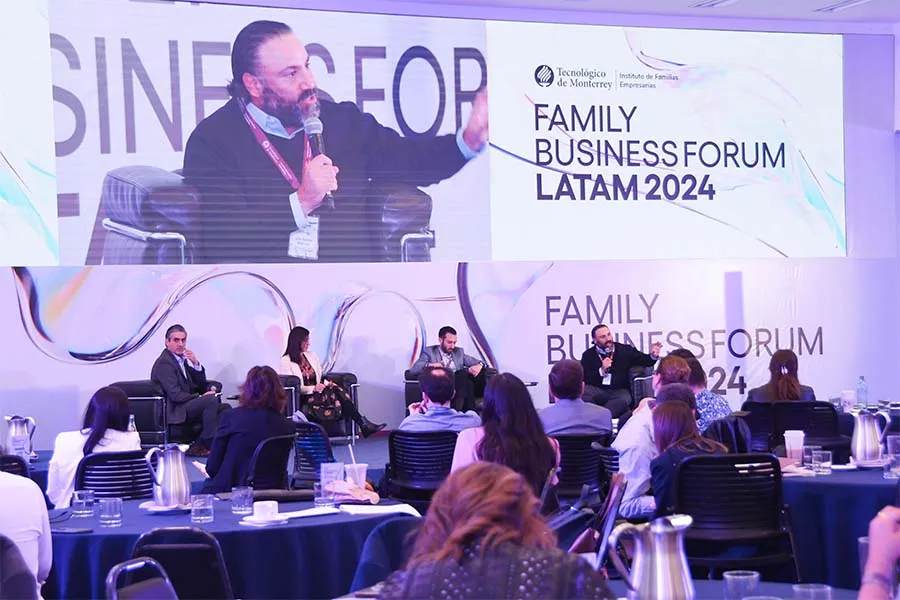
How to lead with everyone’s interests in mind
Martín Quirós, an entrepreneur, consultant, and lecturer who is passionate about SMEs and family businesses, said that one of the requirements is that leaders cannot be toxic to the company.
During his lecture “How to Lead with Everyone’s Interests in Mind”, the author of the book “De hijos a líderes” (From Children to Leaders), said, “If people are toxic to the company, they need to be corrected, and if they’re not corrected, they need to be removed, because you can’t fight with everyone, with the employees”.
He spoke of the importance of trust, of identifying those who can lead the company and take care of the family, as well as the corporate harmony of the future.
“There are some children who love the business, who are passionate about it, who are hungry, who have ambition, who want to grow the business a lot more.
“But for those children, apart from taking care of the business and making it grow, if they want to lead, they have a new responsibility, which is to look after the interests of their future partners.”
Quirós addressed the children of family businesses, “It’s very important that the children, I say this as the second generation in my own case, that we understand how to add value. The company needs people who are hungry.”
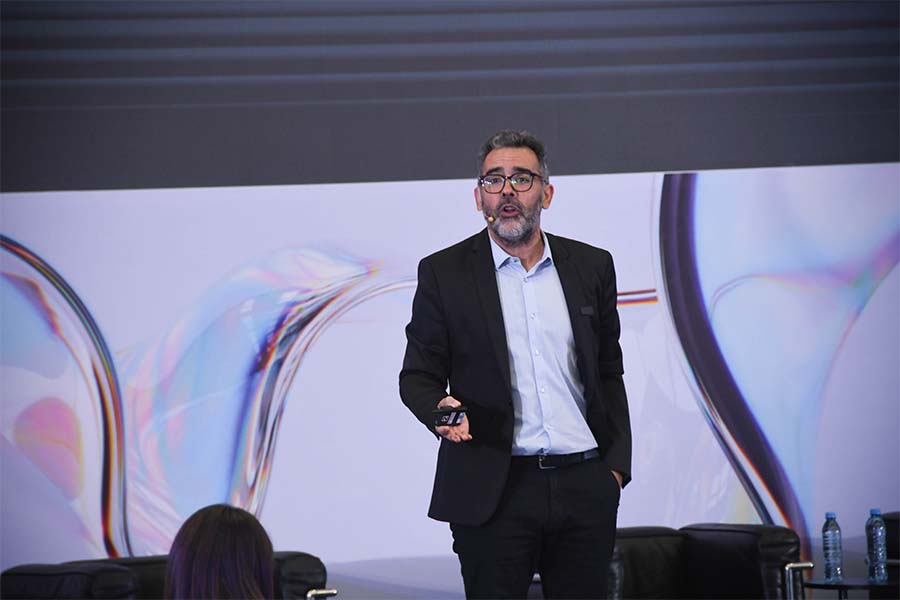
Family Business Forum LATAM 2024
Family Business Forum LATAM is an event hosted by Tecnológico de Monterrey’s Institute of Family Enterprise for Mexico and Latin America and held in the city of Monterrey, Mexico’s business epicenter.
From November 20-22, leaders and members of business families gathered to participate in conferences, panels, networking sessions, and guided tours of leading companies in the region.
The forum is designed to address the unique challenges and opportunities faced by family businesses, promoting a space for learning and an exchange of experiences.
EGADE Business School was the venue for the event.
ALSO READ

